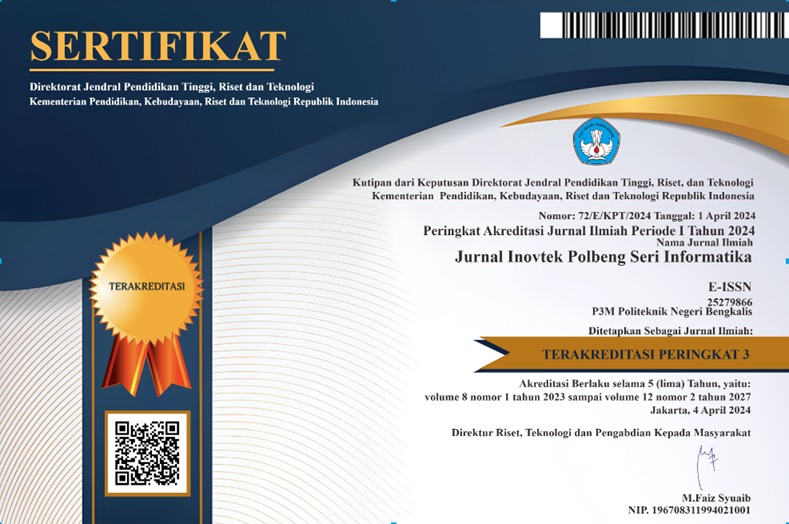Comparison of SVM and Naive Bayes Algorithms in Sentiment Analysis of User Reviews on Bukalapak
DOI:
https://doi.org/10.35314/dqhpkb12Keywords:
Sentiment Analysis, SVM, Naïve Bayes, E-Commerce, TF-IDFAbstract
Indonesia’s rapid e-commerce growth has produced a vast volume of user reviews, yet their use for insight extraction remains limited—particularly for the Bukalapak platform. This study compares the performance of Naïve Bayes and Support Vector Machine for sentiment classification on 10,000 Bukalapak reviews. The workflow includes text preprocessing (cleaning, case folding, tokenization, stopword removal, and stemming) and feature extraction using Term Frequency–Inverse Document Frequency (TF-IDF; max_features = 10,000). Evaluation employs 10-fold cross-validation with accuracy, precision, recall, and F1-score, complemented by a paired t-test for significance. Results show SVM outperforming NB (accuracy 84.48% vs. 83.96%; F1 0.8253 vs. 0.8205) with better consistency (standard deviation ±1.08% vs. ±1.24%). The t-test confirms a significant difference (p = 0.019), with SVM’s advantage most evident for the negative class (precision 0.80 vs. 0.78). Both models underperform on the neutral class due to severe class imbalance. These findings provide empirical evidence for algorithm selection in Indonesian e-commerce sentiment analysis and open avenues for future research using deep learning and class-imbalance handling techniques.
Downloads
Downloads
Published
Issue
Section
License
Copyright (c) 2025 INOVTEK Polbeng - Seri Informatika

This work is licensed under a Creative Commons Attribution-NonCommercial-ShareAlike 4.0 International License.














